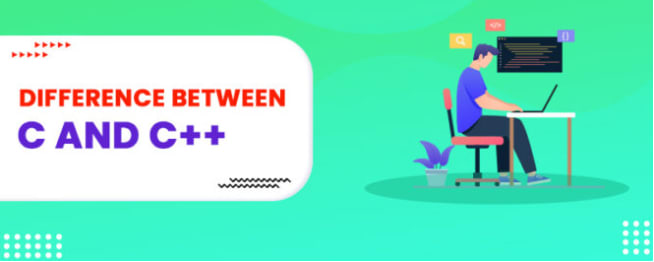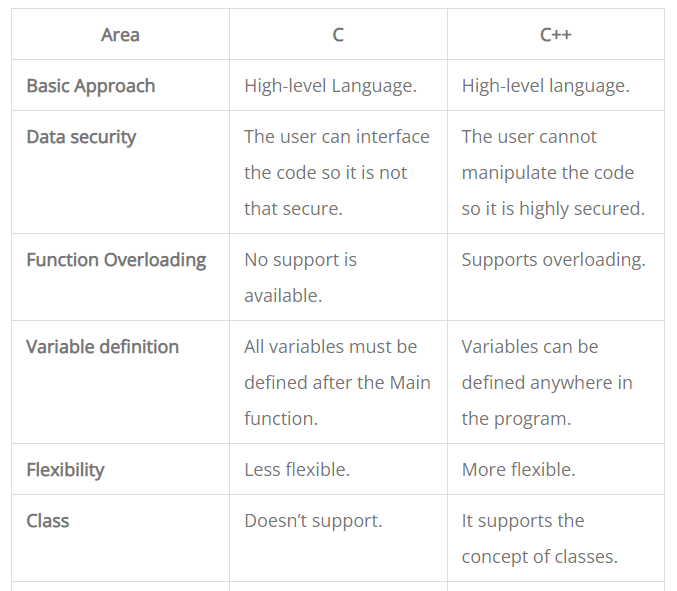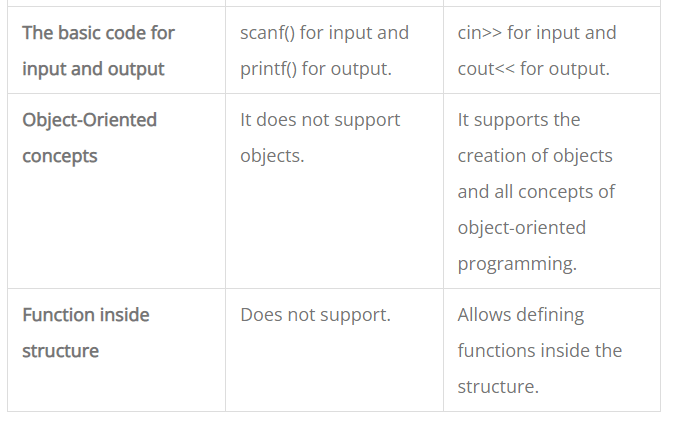Every beginner has the question that what should be the right choice to start the programming with? Also, many newcomers aren’t aware of the differences between C and C++. Here in this article, we will cover all the differences between C and C++ (C vs C++) and also discuss what language you should choose between the two.
C++ Programing
C++ is a high-level programming language, which is created by Bjarne Stroustrup at Bell Labs. It is the updated adaptation of C. In contrast to C, C++ ditches the procedural programming worldview and clings to the article arranged programming worldview, which assists a great deal with tackling ongoing issues.
C Programming Language
Designed by Dennis Ritchie at Bell Labs, C is a high-level programming language that first appeared in 1972. C follows the procedure-oriented (procedural) programming approach that makes it different from the other languages that came into existence after the C language.
It, however, has limited keywords, which is not enough to solve real-time problems.
Conclusion
C vs C++ is a topic of eternal debate. Although C++ is more popular than C, both are among the most popular programming languages. Starting with C++ is good to easily understand the concepts related to programming.









Top comments (1)
C++ does not ditch the "procedural programming worldview." C++ is multi-paradigm. It supports procedural and object-oriented, but isn't dogmatic about it.
The number of keywords a language has is a meaningless metric and certainly doesn't mean it can't solve real-time [sic] problems. The Linux kernel is still written in C and runs on everything from desktops to servers to Android phones.
Your chart above is also either vague (e.g., "flexible") or simply wrong (e.g., "Variable definition").
Some comments have been hidden by the post's author - find out more